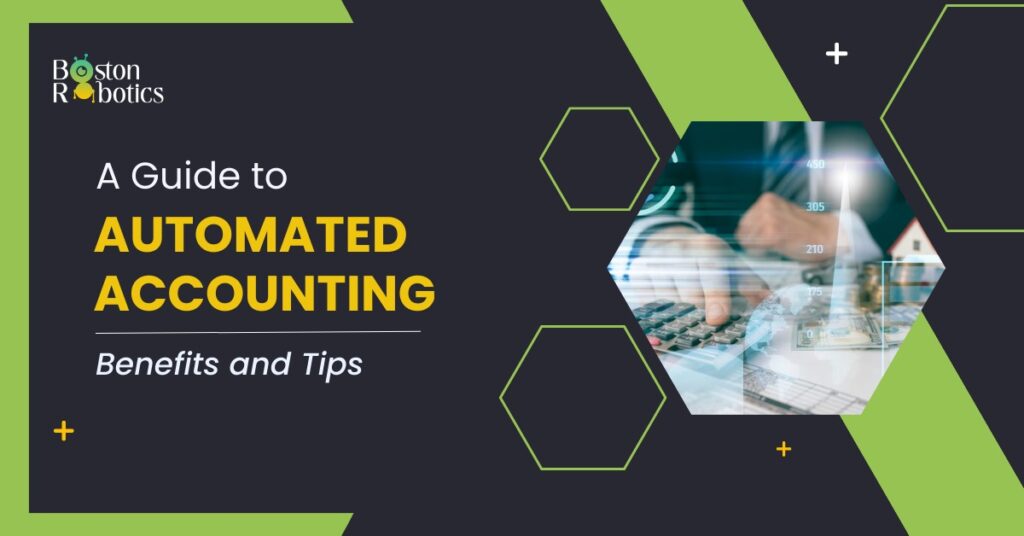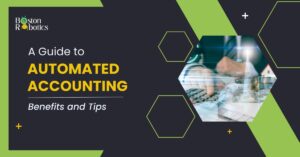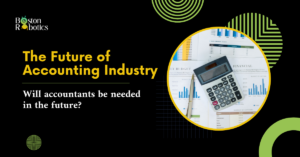Finance processes are similar in many ways across different industries and places. Finance and accounting (F&A) teams often have to do important things like keep accounting books up to date, make financial reports, and collect accounts due.
Traditional accounting tasks have been more efficient, accurate, and compliant with the standards since they’ve been done with software. The current state of the economy says that companies that wait too long to automate their F&A accounting processes will see less productivity and efficiency.
This article will talk about the benefits of automated accounting systems and which F&A tasks are easy to change.
Understanding Accounting Automation
Accounting automation automates financial procedures with software. Reconciling accounts, updating financial data, and creating financial records can be done without a person using accounting software.
This doesn’t mean that you can fully get rid of the need for people to do accounting tasks by automating them. Instead, it just means that you can automate the manual and time-consuming tasks so that your accounting team can focus on the high-value ones.
Will Accounting Become Automated?
In recent years, artificial intelligence (AI) and robotic process automation (RPA) have substantially enhanced financial systems. artificial intelligence (AI)-powered accounting software may eventually be able to track and record data. It gets rid of things that researchers have to do over and over again, like entering data and doing math, so they can focus on more important things.
Accounting processes can be rethought with the help of automation solutions. Modern methods need as little help from people as possible and get the job done right the first time. It allows your staff more time for crucial tasks like budgeting and planning investments.
Advantages of Implementing Accounting Automation
1. Service Faster
Accounting options that can be done automatically save time and work for your accountant. Your financial team can now do their work faster and more accurately. This gives you the chance to work with more clients and grow your market share.
2. Data Accuracy
To maintain procedures and client relations, correct data is essential. Even if a professional is careful and thorough, they can still lose a number or forget a zero. Accounting software makes it less likely that mistakes will be made and makes sure that the numbers are correct.
3. Cutting Costs
Automation can make gathering and putting together data easy. People who aren’t IT experts can easily make reports and see how data looks with self-service analytics in Accounting automation software.
4. A Complete Look at it
Accountants and AR experts need relevant and accurate data to track trends, spot fraud, and figure out different metrics that show the financial health of a business.
Automation can make it easier to gather and put together data. Self-service analytics in automated accounting systems make it easy for people who aren’t in IT to make reports and see how data looks.
5. Stronger Safety
Traditional accounting systems need a lot of paperwork, like big ledger books, log entry records, and more. There’s a good chance that these papers will get lost, which would slow things down because there would be no backup. Automated accounting solutions can organize and secure data in the cloud data centers.
6. Faster info Retrieval
In the days before computers, cabinets held rows of cases full of paper files and books. You had to look through stacks of records to find a paper. This is a long way to look for something. With automation solutions, it’s easy to find and get info. You can look for the document using the file name, the owner’s name, or other meta tags. With automated accounting systems, it is also easier and less expensive to store data.
Challenges of Automated Accounting
When we talk about automating finance and accounting chores. There are some short-term risks and challenges. Here are a few that you can pay attention to:
1. Software that is Hard to Use
Some companies can’t afford or don’t need software that is too complicated or expensive for their needs.These large apps may be difficult to use. However, with automated accounting, you can choose a plan based on your needs.
2. Slow Period of Training
Accounting software requires training. Unfortunately, the amount of time it takes to train each person can be different, which can slow down the implementation of the answer.
3. Matters of Technology
IT Support: Technical problems can be caused by your operating system, your internet link, or a bug in your software. Even though the software is built so that any technical problems can be fixed by the system itself, some IT help is still needed to fix the problems.
System Downtime: Sometimes technical problems cause software systems to go down, making it hard to get to databases. When a system goes down, it slows down processes and makes work more difficult.
4. It’s Hard to Move and Integrate Data
The accounting software may misread or skip parts of your database, causing issues in the new database. It’s also possible that it doesn’t share data with your ERP or CRM because it doesn’t connect with them.
5. Problems with Following Rules
If your accounting software makes a mistake, it could make a regulatory report that isn’t as accurate as it should be. This could lead to breaking the law and facing fines and other punishments.
Streamlining Accounting Processes Through Automation
1. Payroll
Payroll and payouts are two of the most important things that finance teams do. A lot of careful idea is needed. Payroll analysts spend hours, looking at each employee’s tax records. And pay rates to make sure their reports are right. Your team can save a lot of time and work by automating the payment process. It also makes sure that payroll reports are correct, which makes employees less likely to complain and happy with their jobs.
Whether you have fixed-pay workers or freelancers who get paid by the hour, automation solutions can help you deposit money directly into their bank accounts, compute pay, link with time-tracking software, handle payroll taxes, and auto-file.
2. Trading
Purchase orders and contracts are common paperwork for companies buying goods and services. Purchase orders are automated to prevent loss and improper documentation.
Buy management solutions in accounting automation software automate low-value, repetitive operations like purchase orders and payments.
3. Finance management
Like the end of each month’s finances, tax season is a very stressed time. Everyone rushes to close accounts, piling up tasks.Here are some of the most usual problems that people face during this time:
- Error spotting, checking, and fixing
- Keeping up with the rules for tax benefits
- Getting back invoices and records that were lost when data was moved from one system to another.
- Finding out who paid anonymously.
- You can automate these tasks by using built-in features in your program or tools for automation.
4. Expense management
It’s often just as hard to track down late-paying customers as it is to get expense papers from coworkers. Some of them may have lost their papers. And others may have ones that are only partly filled out.
Software that automates jobs makes it easier to keep track of expenses, collect them, and send them to the right place.The expense tracking software can also be set up to instantly record expenses and receipts when corporate credit cards are used. The portal lets employees scan their papers and post them. The tool then transfers the data to your accounting software. Making bookkeeping easy for your finance team.
5. Payable accounts (AP) and outstanding accounts (AR)
Accounts due and accounts receivable have a big impact on the cash flow of your business. These are both important parts of your cash flow account. When Account Payable isn’t handled well, it drives up costs for the business and hurts its reputation with sellers. On the other hand, if a company doesn’t take care of its AR, it might not get paid on time, which could affect its operating capital.
To improve accounts receivable, you should keep track of payments that are still due, remind customers to pay on time, and make it a top goal to collect from high-risk customers. AR software can automate these and other AR operations, making your finance team’s job easier.
Conclusion
In conclusion, automatic accounting has a lot of benefits, such as saving time and making things more accurate and efficient. By using automation and the tips given, companies can improve their financial processes and keep up with the fast-paced world we live in. Embrace the future of accounting and see how technology can change things.




